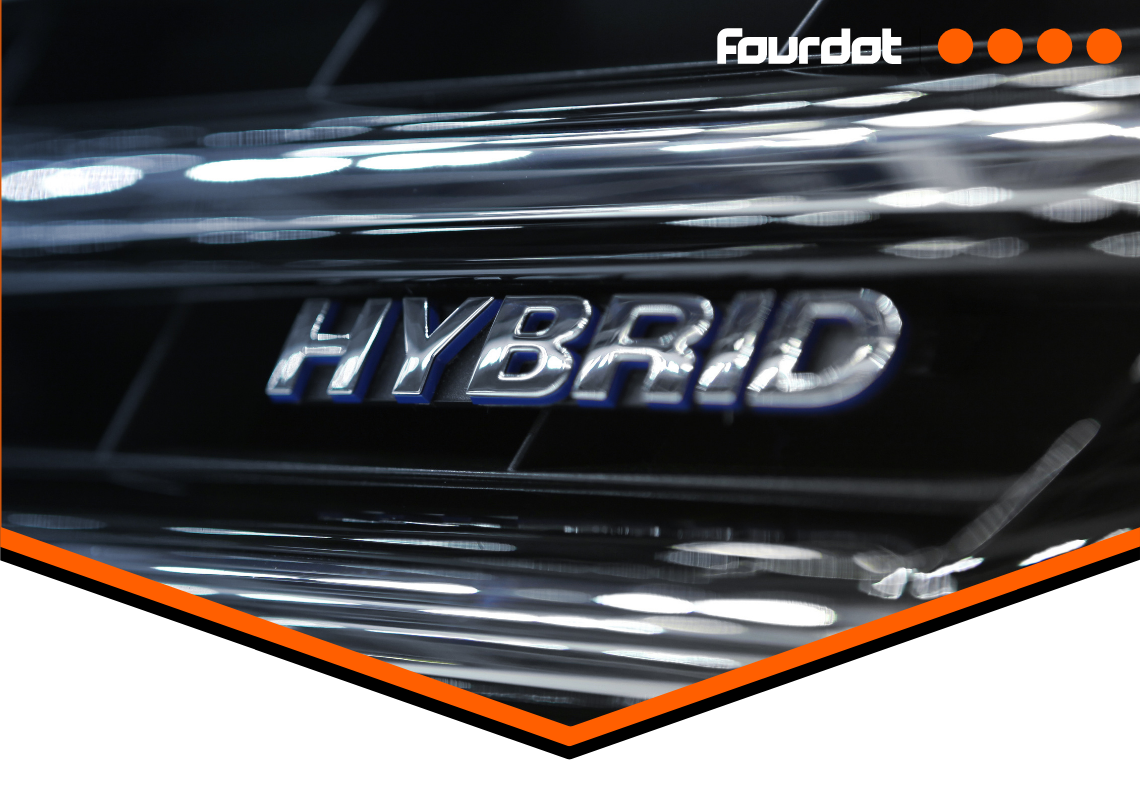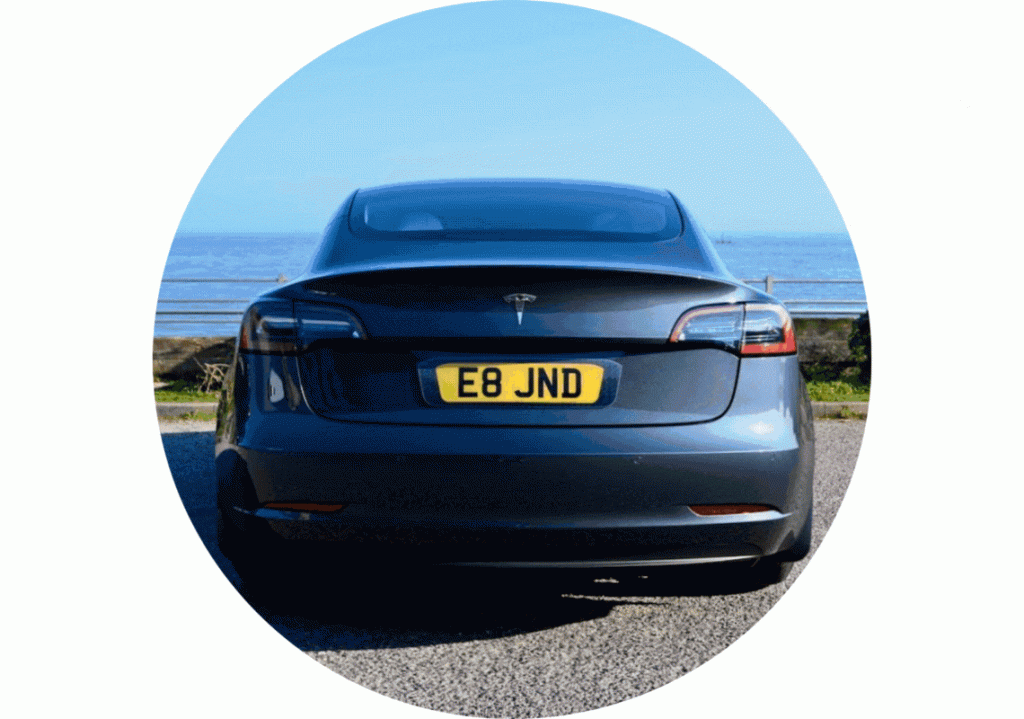In a world where environmental consideration is paramount, the automotive industry has responded with innovative ways to minimise carbon footprints without compromising performance. One such innovation is the hybrid car. But what exactly is a hybrid car, and what makes it a compelling choice for today’s drivers?

What Is A Hybrid Car? Decoding Hybrid Cars:
At its core, a hybrid car combines two distinct power sources: an internal combustion engine and an electric motor. Unlike conventional vehicles solely reliant on petrol or diesel engines, hybrids seamlessly switch between an electric motor and an internal combustion engine or utilise both simultaneously, optimising fuel efficiency and reducing emissions.

How Do They Work?
Hybrid cars employ a process called regenerative braking to harness kinetic energy during deceleration. This energy is then stored in a battery, powering the electric motor to assist the engine during acceleration or operate independently at lower speeds. When cruising, the engine takes over, ensuring a balanced power distribution and maximising efficiency.
The Perks Of Going Hybrid:
1. Environmental Friendliness:
By reducing reliance on fossil fuels, hybrid cars significantly decrease greenhouse gas emissions and air pollution. The integration of electric power minimizes tailpipe emissions, making them a cleaner alternative to traditional vehicles, especially in urban environments.
2. Enhanced Fuel Economy:
Hybrid technology optimises fuel consumption by utilising electric power for low-speed driving and engine power for highway speeds. This translates into impressive fuel efficiency, offering drivers more miles per gallon and reducing dependency on non-renewable resources.
3. Cost Savings:
While hybrid cars may have a higher upfront cost compared with conventional motor vehicles, their long-term benefits outweigh this initial investment. Lower fuel consumption means fewer trips to the petrol station, resulting in significant savings over time. Additionally, some regions offer tax incentives or rebates for purchasing hybrid vehicles, further offsetting the initial cost.
4. Reduced Maintenance:
The dual-power system of hybrid cars typically results in less wear and tear on the internal combustion engine. With fewer moving parts and less strain on components like brakes and transmission, maintenance costs are often lower compared to traditional vehicles, saving drivers both time and money in the long run.
5. Superior Driving Experience:
Hybrid cars offer a smooth and quiet ride, thanks to the electric motor’s silent operation during low-speed manoeuvres. The seamless transition between power sources ensures responsive acceleration and enhanced driving dynamics, making each journey a pleasurable experience.

How Long Do The Batteries Last An A Hybrid Car?
Hybrid car batteries typically last 8 to 15 years or more, depending on factors like driving habits and environmental conditions. Manufacturers often provide warranties for 8 to 10 years or a certain mileage. While battery performance may gradually decline over time, modern hybrid batteries are durable and engineered to withstand numerous charge-discharge cycles. Maintenance and following manufacturer guidelines can help optimize battery life.

Hybrid v Full Electric
Electric cars run solely on electricity stored in batteries, providing zero emissions and a fully electric driving experience. Conversely, hybrid cars combine an electric motor with an internal combustion engine, offering a blend of electric power and traditional fuel for improved efficiency and extended driving range, making them a more versatile option for drivers who may require longer trips without and do not have a set up to charge an electric car.
Top 10 Facts about Hybrid Cars:
| 1. Fuel Efficiency: Hybrid cars combine an internal combustion engine with an electric motor, resulting in significantly improved fuel efficiency compared to conventional vehicles. | 2. Regenerative Braking: Hybrid cars use regenerative braking to capture and store energy that would otherwise be lost during braking, helping to recharge the battery and increase overall efficiency. |
| 3. Reduced Emissions: By relying partially or entirely on electric power, hybrid cars produce fewer emissions than traditional gasoline or diesel vehicles, contributing to cleaner air and lower environmental impact. | 4. Silent Operation: At low speeds, hybrid cars often operate solely on electric power, resulting in near-silent operation and reduced noise pollution in urban environments. |
| 5. Dual Power Sources: Hybrid cars seamlessly switch between the internal combustion engine and electric motor or use both simultaneously, optimizing power delivery for improved performance and efficiency. | 6. Lower Operating Costs: With improved fuel efficiency and reduced reliance on gasoline, hybrid cars typically offer lower operating costs over time, saving drivers money on fuel and maintenance. |
| 7. Maintenance Benefits: The design of hybrid cars often results in fewer mechanical components and less wear and tear on the engine, leading to reduced maintenance requirements and longer-lasting components. | 8. Government Incentives: Many governments offer incentives such as tax credits, rebates, and access to carpool lanes to encourage the adoption of hybrid vehicles, providing additional cost savings for owners. |
| 9. Range Variability: Hybrid cars come in various configurations, including mild hybrids, full hybrids, and plug-in hybrids, offering different levels of electric range and flexibility to suit different driving needs and preferences. | 10. Advancements in Technology: Continued advancements in hybrid technology, such as improved battery technology, regenerative braking systems, and hybrid drivetrains, contribute to further enhancing the performance, efficiency, and appeal of hybrid cars. |
Conclusion:
In a world where sustainability is paramount, hybrid cars represent a significant step towards a greener future. Their innovative technology not only reduces environmental impact but also offers tangible benefits to drivers, from enhanced fuel economy to reduced maintenance costs. As we continue to prioritise eco-conscious solutions, the rise of hybrid vehicles signifies a promising evolution in the automotive landscape—a fusion of efficiency, performance, and environmental responsibility.


